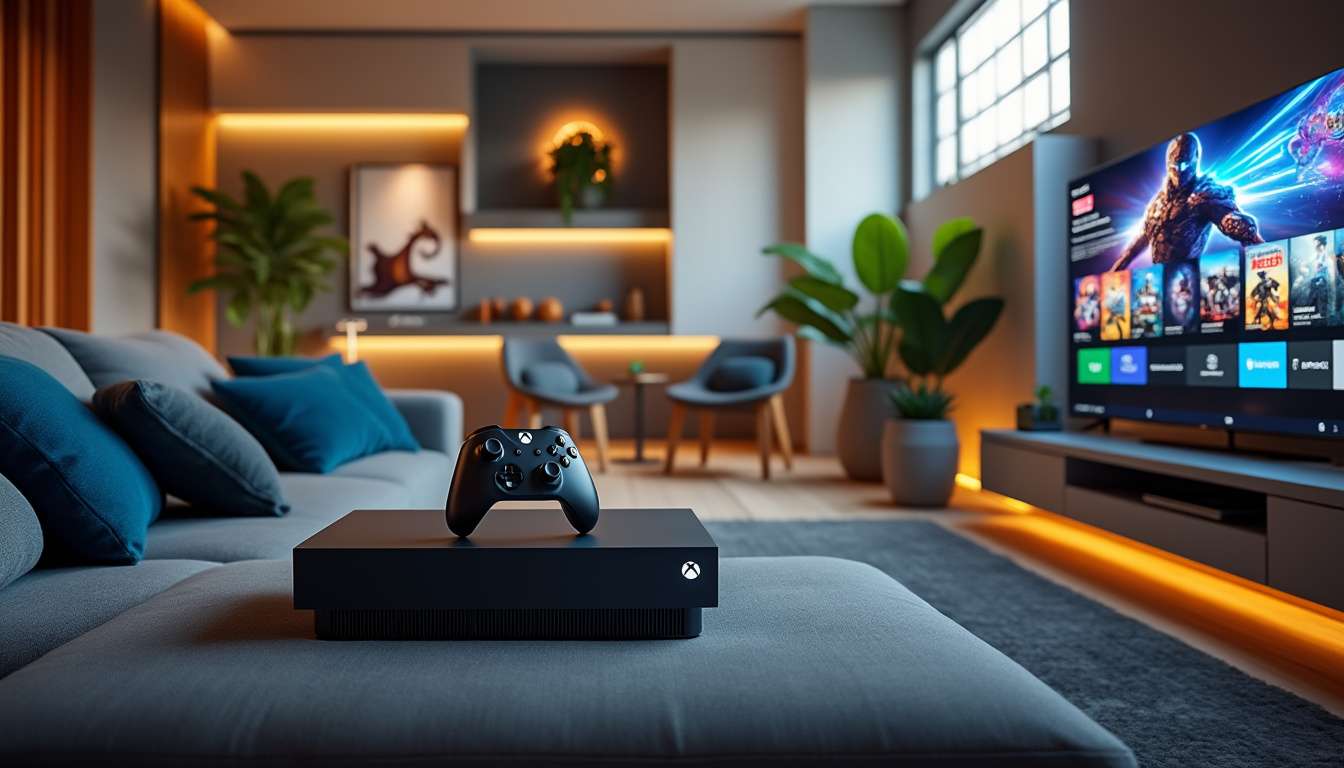The Xbox Series X launched with promise of next-gen power and exclusives, but in 2025, with Microsoft doubling down on Game Pass as its centerpiece, many gamers are asking: Is this console still a must-have? While subscription numbers have plateaued, the value proposition of Game Pass remains compelling. However, the Xbox ecosystem’s shifting strategy toward accessibility across PC, cloud, and multiple platforms challenges traditional console ownership. Exploring whether the Series X is worth the investment now involves weighing hardware excellence against Microsoft’s broader ambitions and the evolving gaming landscape that includes PlayStation’s exclusives, PC’s flexibility, and new contenders like Steam-based gaming devices.
Contents Overview
- The Xbox Series X and Game Pass: A Symbiotic Relationship
- Changing Landscape of Exclusives: Xbox, PlayStation, and the Rise of Cross-Platform
- Comparing Xbox with PC and PlayStation in 2025
- Future Directions: Cloud Gaming and the Shifting Xbox Strategy
The Xbox Series X and Game Pass: A Symbiotic Relationship
Microsoft’s Game Pass subscription service remains a cornerstone of its gaming ecosystem, offering access to hundreds of titles for a monthly fee. Despite subscription growth having flattened recently, Game Pass still represents tremendous value for many gamers, bundling new releases like Mafia: Old Country and acclaimed titles with a diverse catalog spanning decades.
However, the question remains if Game Pass alone can justify investing in Xbox hardware.
- Performance: The Xbox Series X delivers strong 4K gaming performance with fast load times, enhanced visuals, and features like Quick Resume.
- Game Library: Access to a vast Game Pass catalog plus backward compatibility on Xbox but limited exclusive titles as Microsoft licenses more games to PlayStation.
- Subscription Value: Game Pass’s low monthly cost provides access to a high volume of games, enticing those who prioritize variety and affordability.
- Hardware Costs: As prices hover around $400-$500, some gamers weigh cheaper options like the Series S or PC gaming setups against Series X raw power.
| Aspect | Xbox Series X | Xbox Series S | PC Gaming | PlayStation 5 |
|---|---|---|---|---|
| Performance | 4K 60fps, powerful GPU | 1440p 60-120fps, budget GPU | Variable, scalable to ultra settings | 4K 60fps, exclusive games |
| Game Pass Support | Yes | Yes | Yes, via app | No |
| Exclusive Titles | Limited due to cross-platform | Same ecosystem | Wide variety via Steam, Epic Games | Strong first-party exclusives |
| Price | $499 | $299 | $600+ | $499 |
Game Pass: Is It Enough to Buy an Xbox Series X?
While Microsoft’s strategy centers on Game Pass as the primary attraction, subscription numbers are stable rather than soaring. The question is whether owning high-end Xbox hardware still serves a purpose if most games are available on various devices.
- Game Pass offers access to blockbuster titles like Oblivion Remastered and indie gems, available on Xbox, PC, and cloud platforms.
- Console ownership traditionally means exclusive titles and performance boosts, but Xbox’s loosening exclusivity reduces that edge.
- The ecosystem push means Xbox games are playable on phones and TVs, diminishing hardware necessity for casual gamers.
- Gamers investing in peripherals from brands like Razer, Alienware, and Logitech might lean toward flexible setups, like gaming PCs, for Game Pass access plus broader game compatibility.
Changing Landscape of Exclusives: Xbox, PlayStation, and Cross-Platform Access
The definition of exclusivity has blurred. Microsoft’s acquisition spree including Bethesda and Activision Blizzard initially raised hopes for exclusive content, but many titles are showing up on PlayStation consoles and PC.
Games once deemed flagship Xbox exclusives like Halo and Gears of War have made or will make appearances beyond Xbox hardware, a shift that challenges classic console loyalty.
- PlayStation’s strength: First-party exclusives still anchor Sony’s ecosystem, offering games that Xbox hardware won’t get.
- Cross-buy and cloud play: Xbox’s multi-platform approach benefits gamers wanting to play anywhere but dilutes the console’s unique appeal.
- Game availability: PlayStation and Nintendo offer treasured exclusives, with Nintendo’s Switch still a unique platform despite being less powerful.
- PC gaming: The open platform reigns supreme for extensive libraries across Steam and Epic Games Store, including many Xbox Game Pass titles.
| Platform | Exclusive Strength | Subscription Access | Backward Compatibility |
|---|---|---|---|
| Xbox | Limited, increasingly cross-platform | Game Pass | Strong (Xbox One, 360, original Xbox) |
| PlayStation | Strong | PlayStation Plus Premium | Limited, fewer past-gen titles playable |
| PC | Varies by game | Xbox Game Pass (via PC), Epic Games | N/A |
Comparing Xbox with PC and PlayStation in 2025
The best gaming device depends largely on what you prioritize: graphical fidelity, exclusive content, price, or ecosystem convenience. PCs have surged as the most flexible platform, with brand peripherals like Razer and Alienware enhancing experience, while Xbox ebbs towards service-based appeal. PlayStation holds exclusive narratives and beloved franchises.
- Xbox’s advantage: Superior hardware combined with Game Pass value.
- PlayStation’s appeal: Strong, exclusive narratives and franchises.
- PC’s power: Modular, upgradeable, and with unmatched game diversity from platforms like Steam.
- Price consideration: Xbox Series S and competitive PC builds offer alternatives to the premium Series X price.
| Factor | Xbox Series X | PlayStation 5 | Gaming PC |
|---|---|---|---|
| Hardware | Custom RDNA 2 GPU, 12 TFLOPS | Custom RDNA 2 GPU, 10.28 TFLOPS | Varies, can exceed console specs |
| Games Available | Game Pass + limited exclusives | Strong exclusives + PS Plus | Vast libraries (Steam, Epic Games, Xbox Game Pass) |
| Subscription Services | Game Pass Ultimate | PlayStation Plus Premium | Xbox Game Pass on PC |
| Price Range | $499 | $499 | Starting around $600 |
Future Directions: Cloud Gaming and Xbox’s Expanding Ecosystem
Microsoft’s future vision for Xbox transcends that of a simple console, aiming to integrate gaming across devices with a cloud-first approach. The company is experimenting with cloud gaming on phones, smart TVs, and PCs, decoupling the Xbox brand from specific hardware.
This approach may appeal to younger gamers raised on mobile ecosystems or those who want flexible, device-agnostic play. However, the traditional console ownership model may feel less relevant as more titles appear on PlayStation and PC.
- Cloud Gaming: Xbox Cloud Gaming offers access on devices beyond traditional consoles and PCs, though latency remains a concern.
- Hardware Evolution: Rumors suggest upcoming Xbox devices might merge with PC ecosystems, possibly running Steam alongside Xbox content.
- Subscription Focus: The financial incentive now prioritizes active subscriptions, microtransactions, and game pass engagements over hardware sales.
- Competitive Ecosystem: PlayStation continues to build value on exclusives, Nintendo expands Switch innovations, and PC gaming thrives on Steam and Epic Games Store diversity.
| Aspect | Microsoft Xbox Strategy | PlayStation Strategy | Nintendo Strategy |
|---|---|---|---|
| Hardware Focus | Cloud-first, multi-device experience | Exclusive hardware with narrative-driven games | Switch and successors focused on hybrid portability |
| Content Strategy | Game Pass subscription and cross-platform access | Strong exclusives, subscription tiers | Exclusive titles for unique hardware |
| Ecosystem | Everywhere – phone, TV, PC | Console-centric | Portable hybrid focus |
For more insights on Xbox and the gaming race, explore comprehensive comparisons and upcoming releases on Only Gaming along with explorations into handheld Xbox devices here and Game Pass strategy deep dives there.

